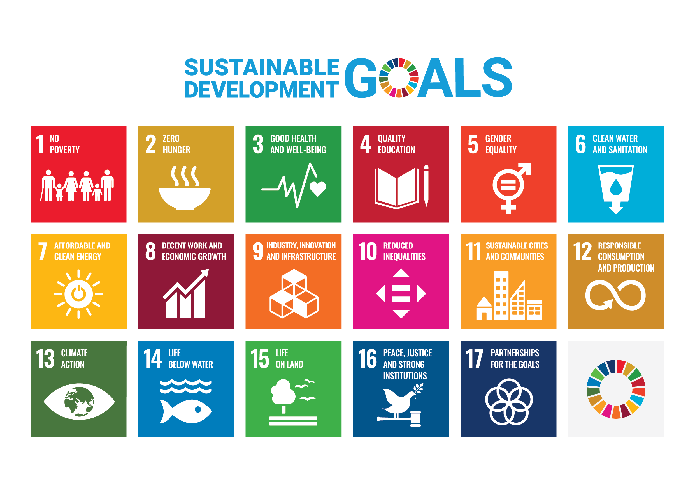- HOME
- Nagaoka University of Technology
- About Us
- University Introduction
- Efforts of Nagaoka University of Technology Toward Achieving the SDGs
Efforts of Nagaoka University of Technology Toward Achieving the SDGs

Since its founding, Nagaoka University of Technology (NUT) has emphasized service to society based on the motto “VOS” (Vitality, Originality, and Services). It is a university tradition to put the results of our R&D into practice in society through collaborative research with industry, thus contributing to the solution of multifaceted social issues including environmental problems, energy saving, and job creation.
In addition, we have cooperated actively with International Technical Cooperation Projects conducted by the Japan International Cooperation Agency (JICA). Beginning with the dispatch of experts to the Asian Institute of Technology (Thailand) in 1989, we have sent many faculty members abroad over the years, including to the Higher Education Development Support Project in Indonesia, to assist in the expansion of the Faculty of Engineering at Thammasat University (Thailand), and to support the Faculty of Engineering at the National University of East Timor. Moreover, by supporting the establishment of technical colleges in Mongolia, Mexico, and other countries, we have engaged actively in international cooperation intended to expand the engineering education and human resources development that form the basis for the development of industry and infrastructure.
The Sustainable Development Goals, or SDGs, originated from Agenda 21, adopted at the UN Earth Summit in 1992, and from the Basic Environment Act enacted by Japan in 1993 in response to Agenda 21. NUT has always been firmly aware of sustainable development; in 1994, we established the Environmental Systems Engineering Program with the aim of developing engineers who will uphold the spirit of the Basic Environment Act.
Since the adoption of the SDGs by the UN General Assembly in 2015, we have been actively involved in activities aimed at their realization, including the development of SDG educational materials for children and the hosting of an international conference (STI-Gigaku) to present educational research that leads to the SDGs’ fulfillment.
Furthermore, after the adoption of the SDGs, the university was quick to start developing an engineering education program incorporating the SDGs into integrated practical engineering education, establishing the GIGAKU SDG Institute in 2017. In 2018, the GIGAKU SDG Institute was approved as a UNESCO Chair on Engineering Education for Sustainable Development, the first UNESCO Chair program at a Japanese engineering university. Building on this program to create an engineering education program focused on the SDGs and practical engineering, we have created a basis for global expansion, in addition to the 2019 joint application by ten like-minded institutions from six countries to UNITWIN, creating a network that contributes to a sustainable society through engineering education.
These initiatives have won high praise from the United Nations: in 2018, NUT was appointed as the United Nations Academic Impact hub for SDG 9 (Industry, Innovation and Infrastructure). 17 hub universities, one per goal, have been selected worldwide, of which NUT is the only one in East Asia. NUT will further enhance our efforts to promote and raise awareness of the SDGs and develop new technologies, fulfilling our responsibility as a model university to promote stable industrialization that will benefit people around the world.
X(Twitter)・Facebook
Information about efforts of NUT toward achieving the SDGs is available on our SNS.
University Introduction
- About Us
- Our Future Vision
- History
- Distinctive Features
- Organization
- Number of students and staffs
- Research and Instructional Centers
- Administration Bureau
- Symbol Mark
- Organization of the Academic Programs
- Efforts of Nagaoka University of Technology Toward Achieving the SDGs


